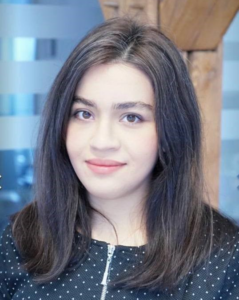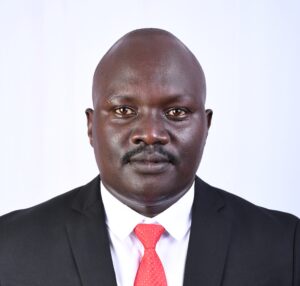From Engineering to Impact: Banting Winners at Lassonde Tackle Global Challenges
Tags:

This story originally appeared in YFile.
Scholars at York University’s Lassonde School of Engineering, Saba Asaad and Stephen Melly have been named among this year’s recipients of the prestigious Banting Postdoctoral Fellowship awarded by the Government of Canada.
The fellowship program aims to attract and retain top-tier postdoctoral talent, develop their leadership potential and position them for success as research leaders of tomorrow. Valued at $70,000 per year for two years, it allows ambitious scholars to conduct their research and devote substantial time to work without the financial pressures that might typically arise.
The successful applicants were reviewed against three equally weighted selection criteria: research excellence and leadership in the research domain; quality of the proposed research program; and institutional commitment and demonstrated synergy between the applicant and institutional strategic priorities.
Below are Lassonde’s Banting Postdoctoral Fellows for 2023-24 and their associated projects.
Saba Asaad – Department of Electrical Engineering & Computer Science

Asaad’s research project, titled “Over-the-Air Federated Learning via Benchmark Wireless Network,” develops algorithmic and analytic frameworks to address essential issues arising in the implementation of federated learning (FL) – a sub-field of machine learning that relies on decentralized data – in practical wireless networks. Asaad’s project proposes an alternative method called over-the-air FL which can address those challenges.
“Federated learning was first designed for ideal communication networks,” explains Asaad. “However, in realistic edge-learning scenarios, the edge devices [which provide a connection between different networks], connected to the parameter server via wireless links, face several challenges due to uncertain wireless conditions and limited resources.”
Asaad’s approach can be leveraged in the development of a large variety of services that deal with the concept of distributed learning.
Stephen Melly – Department of Mechanical Engineering

Melly’s proposed research, titled “Development of the Computational Constitutive Model for Super-soft 4D Bioprinted Materials,” aims to formulate computational models that capture the complex mechanical characteristics of super-soft materials. This research has the potential to enhance the understanding of super-soft materials in 4D bioprinting – which has emerged as a useful tool for biomedical applications such as tissue regeneration – facilitating advancements in the field and the development of reliable and customized artificial tissues that match the specific needs of individual patients.
“Successful design and fabrication of engineered tissues necessitate a comprehensive grasp of the mechanical characteristics of super-soft materials,” says Melly. “This guarantees the efficacy of biomedical applications, as differences in mechanical properties between the engineered tissues and the surrounding biological tissues may result in complications like rejection.”
This cutting-edge project helps to meet the growing demand for accurate computational models that describe the complex mechanical behaviours of super-soft tissues.
Read the full story on YFile.